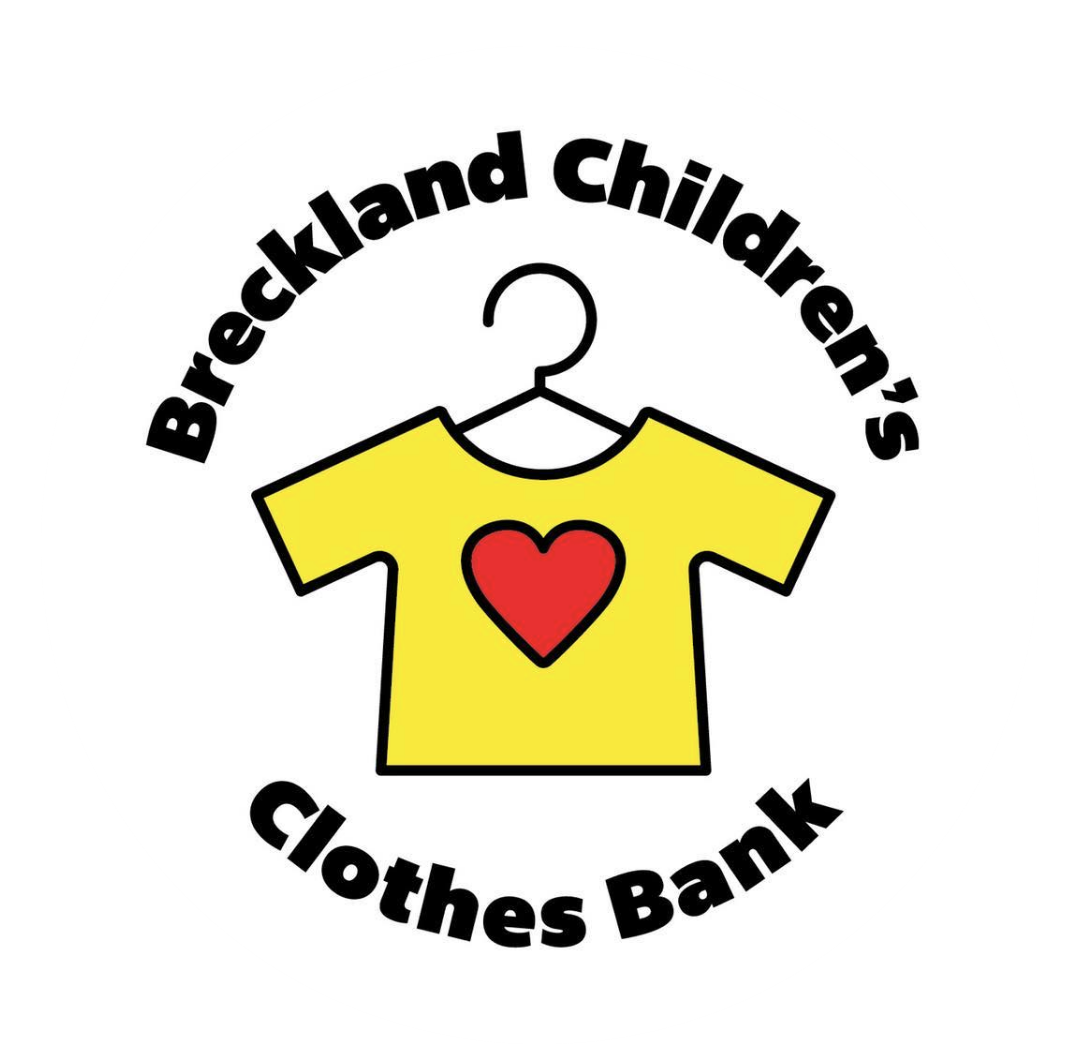Safeguarding Policy
Safeguarding Policy
Child Safeguarding Policy
Website: brecklandchildrensclothesbank.co.uk
Email: brecklandchildrensclothesbank@gmail.com
Address:
Breckland Children’s Clothes Bank,
Unit 1, Lynn Road, Swaffham, PE37 7PT
Introduction
BRECKLAND CHILDRENS CLOTHES BANK is a community based project run for the following purpose:
To provide families in need with good quality second hand children’s clothes.
The charity is based at:
48a Lodge Road, Feltwell, Norfolk, IP26 4DL
The charity has adopted this safeguarding children’s policy and expects every adult working or helping at the charity to support it and comply with it. Consequently, this policy shall apply to all staff, managers, trustees, directors, volunteers, students or anyone working on behalf of the charity.
Purpose of the policy
This policy is intended to protect children who receive any service from us, including those who are the children of adults who may receive service from us. Under this policy, the term children shall mean any person under the age of eighteen years of age.
The charity believes that no child or young person should experience abuse or harm and is committed to the protection of children and young people. This policy is intended to provide guidance and overarching principles to those who represent us as volunteers or staff, to guide our a [approach to child protection and safeguarding.
The Risks to Children
Children can be vulnerable to different forms of abuse and harm. It is important to recognise that abuse and harm of children can cover a wide range of circumstance and behaviours. For example, children can be at risk of:
Physical abuse
Neglect
Sexual abuse
Female genital mutilation (FGM)
Grooming and exploitation
Trafficking and modern-day slavery
Exposure to or infliction of domestic abuse.
Bullying or cyber bullying
Exposure to other inappropriate contact or behaviour, such as violence or criminal behaviour
Self-harm
Physical harm when engaging with activities without adequate supervision.
The casual factors of any such harm/or abuse can also be wide ranging. For example, children can be placed at risk by family members or members of the community.
Safeguarding principles:
Safeguarding children from harm and abuse is an essential responsibility for our charity. We are committed to ensuring that any child who comes into contact with our services is properly safeguarded. Every person under this policy must ensure that they pal an active role in ensuring that children are properly safeguarded.
Every person under this policy holds responsibility for:
Remaining alert and aware of possible safeguarding risks to children.
Guarding children against harmful environments with appropriate actions (for example, adequate supervision or ensuring safe environments)
Taking positive steps to maintain the safety and wellbeing of children engaging with us as a charity.
Reporting concerns expeditiously and appropriately, in line with child protection procedures
Understanding the duty to report specific concerns (and understanding how these interplays with confidentiality)
Challenging any inappropriate or harmful behaviour of any other adult and reporting this accordingly.
Acting appropriately in the presence of children
Not taking any inappropriate risks
Not smoking or taking any form of illicit substances in the presence of children.
Safeguarding officer
Any questions, reports, or concerns in relation to the safeguarding of children should be shared with our safeguarding Officer:
Name: DAWN TEMPLE
Email: dawntemple82@yahoo.com
Telephone:07910207957
Responding to a safeguarding concern
Where a child is at immediate risk of serious harm, any adult present should call 999.; Thereafter, the safeguarding officer should be contacted as soon as is reasonably practical.
When there is a safeguarding concern but no immediate risk of harm, the adult who has heard or witnessed this concern should consult with the safeguarding officer as soon as practical and by no later than the end of the day.
Where any child makes a disclosure relating to harm or abuse to an adult, it is important for that adult to:
Listen calmly and carefully, showing that their views are taken seriously
Provide an appropriate and honest level of reassurance
Avoid interrogating children and asking probing, intrusive and/or leading questions
Avoid making false promises regarding secrets and confidentiality with the child (because any concern of abuse/harm must be shared with the safeguarding officer and any subsequent safeguarding referral.)
Make a confidential written record of the discussion either during the discussion or immediately afterwards. That record should include key details of the disclosure together with any relevant times, dates, places, and people concerned. Audio and video recordings of children making disclosures should be avoided.
Refer all relevant information to the safeguarding officer as soon as practicable afterwards, and by no later than the end of the day.
Upon receipt of any safeguarding concern, the safeguarding officer shall consult with any other relevant persons and will make any appropriate referrals to the relevant authorities, such as the applicable Local Authority Children’s Services department.
Reporting concerns about other adults:
Where any person has a concern regarding the conduct of an adult connected to the charity. Which poses or may pose a safeguarding risk to children such as:
Harming a child either physically or emotionally.
Exposing a child to behaviour which may cause physical or emotional harm
Engaging in criminal activity concerning a child
This must be raised in the first instance with the safeguarding officer (or where this is not a pprioprate another senior member of the organisation) so that the next steps may be agreed and actioned. We recognise that there could be circumstances where a person may need to report a matter that has taken place in a setting outside the persons engagement with the charity.
Usually, any appropriate steps following a safeguarding referral in respect of an induvial connected to the charity will include either-
Further investigates
Escalation to the applicable Local Authority Children’s services for further assessment and/or the police for investigation.
Instigation of any appropriate disciplinary, formal investigation processes and suspension of any person concerned within the charity
A referral to the Disclosure and Barring service, or any other relevant regulatory bodies.
Any person within the charity who has allegations made against them shall be informed properly in a formal meeting of the allegations and the relevant next steps which shall be taken. Such a meeting should ordinally be held by the Safeguarding Officer. On certain occasions, such a meeting may not be convened until this has been approved by any authorities involved.
Any person from with the charity who has allegations made against them shall be treated fairly. All enquiries, investigations and ecisisions taken shall be just and fair, with the safety of any child concerned at the heart of the process.
Any person from within the charity who makes an allegation against another person from within the charity shall be listened to, taken seriously, and shall be treated fairly and justly throughout the processes of enquiries, investigations and decision making.
Training, awareness raising and supervision
BCCB ensures that all staff and volunteers receive basic awareness training on safeguarding children as they may come across children with care and support needs who may be at risk of abuse. Those children may report things of concern to staff or volunteers who should be equipped with the basic knowledge around safeguarding children and be confident to identify that abuse is taking place and action is required. All staff and volunteers should be clear about the core values of BCCB and commitment to safeguarding children.
Similarly, staff and volunteers may encounter concerns about the safety and wellbeing of children. For more information about children’s safeguarding, refer to BCCB’s safeguarding policy
Prevent Radicalisation and extremism of children with care and support needs is a form
Of emotional/psychological exploitation. Radicalisation can take place through direct personal contact, or indirectly through social media.
If staff are concerned that child with care and support needs is at risk of being radicalised and drawn into terrorism, they should treat it in the same way as any other safeguarding concern.
This policy is approved and robustly endorsed by Breckland childrens clothes bank and is due for review annually.
Recruitment and selection
BCCB is committed to safe employment. Safe recruitment practices, such as Disclosure and Barring checks where applicable to reduce the risk of exposing children with care and support needs to people unsuitable to work with them.
Useful contacts
Safeguarding lead– Dawn Temple, Breckland Childrens Clothes Bank, Unit 1 Enterprise house, Lynn Road, Swaffham or by telephone – 079 1020 7957
If your concern relates to an child at risk of harm or abuse, please contact Norfolk County Council, child safeguarding (CADS) on 0344 800 8020
www.norfolk.gov.uk/article/41760/Protecting-someone-from-harm
This policy is approved and robustly endorsed by BRECKLAND CHILDRENS CLOTHES BANK and is due for review annually.
Last Updated: June 2025

